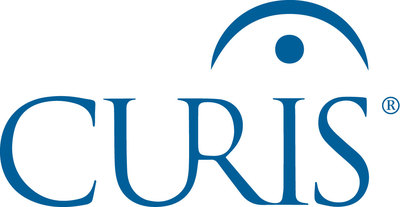Curis Highlights Publication in Nature Cell Biology Identifying Cancer-Causing Form of IRAK4 in Patients with AML and MDS
PRNewswire 12-Jun-2019 7:00 AM
LEXINGTON, Mass., June 12, 2019 /PRNewswire/ -- Curis, Inc. (NASDAQ:CRIS), a biotechnology company focused on the development of innovative therapeutics for the treatment of cancer, today highlighted a publication titled "U2AF1 mutations induce oncogenic IRAK4 isoforms and activate innate immune pathways in myeloid malignancies" in Nature Cell Biology.1 The study findings demonstrate that a cancer-causing splicing variant of IRAK4 (IRAK4-L) is dominant in the majority of cases of acute myeloid leukemia (AML) and myelodysplastic syndromes (MDS). Additionally, specific mutations of the U2AF1 splicing factor induce IRAK4-L, which has potential therapeutic targetability by CA-4948, the Company's small molecule inhibitor of IRAK4. The findings present inhibition of IRAK4 as a potential option for the treatment of patients with myeloid malignancies expressing IRAK4-L and with U2AF1 mutations. Isoform-switching to the oncogenic form of IRAK4 is also present in a subset of breast, lung and colon cancers.

"We are encouraged by these findings in Nature Cell Biology, which support that CA-4948's unique target profile may be beneficial to patients with myeloid malignancies and, in particular, those with IRAK4-L and U2AF1 mutations," said Jim Dentzer, President and Chief Executive Officer of Curis. "There is a large unmet need for further treatment options among this patient subgroup and we look forward to assessing the potential of CA-4948 to address this significant medical issue."
The Company is currently evaluating CA-4948 in an ongoing Phase 1 trial in patients with non-Hodgkin lymphoma, including those with MYD88 alterations, with interim data expected in mid-2019. In addition, the Company is further investigating the potential of CA-4948 in patients with myeloid malignancies expressing IRAK4-L and with U2AF1 mutations.
About CA-4948, a small molecule inhibitor of IRAK4
Innate immune responses orchestrated through Toll-like receptors or certain interleukin receptors are important mediators of the body's initial defense against foreign antigens, while their dysregulation is associated with certain inflammatory conditions. Toll-like receptor and interleukin receptor signaling through the adaptor protein MYD88, results in the assembly and activation of IRAK4, initiating a signaling cascade that induces cytokine and survival factor expression mediated by the transcription factor NF?B. More recently, components of this pathway are recognized to be genetically altered and have important roles in specific human cancers. MYD88 gene mutations are shown to occur in approximately 30% of Activated B-Cell (ABC) subtype of diffuse large B-cell lymphomas (DLBCL) and in over 90% of the B-cell malignancy Waldenstrom's macroglobulinemia. Due to IRAK4's central role in these signaling pathways, it is considered an attractive target for generation of therapeutics to treat these B-cell malignancies as well as certain inflammatory diseases.
About Curis, Inc.
Curis is a biotechnology company focused on the development of innovative therapeutics for the treatment of cancer, including fimepinostat, which is being investigated in clinical studies in patients with DLBCL and solid tumors. Curis is also engaged in a collaboration with Aurigene to develop first-in-class therapeutics in immuno-oncology and precision oncology. As part of this collaboration, Curis has exclusive licenses to oral small molecule antagonists of immune checkpoints including, the VISTA/PDL1 antagonist CA-170, and the TIM3/PDL1 antagonist CA-327, as well as the IRAK4 kinase inhibitor, CA-4948. CA-170 is currently undergoing testing in a Phase 1 trial in patients with mesothelioma and in a Phase 2 trial in patients with advanced solid tumors and lymphomas in India conducted by Aurigene. CA-4948 is currently undergoing testing in a Phase 1 trial in patients with non-Hodgkin lymphoma. Curis is also party to a collaboration with Genentech, a member of the Roche Group, under which Genentech and Roche are commercializing Erivedge® for the treatment of advanced basal cell carcinoma. For more information, visit Curis's website at www.curis.com.
1 Smith et. Al. Nature Cell Biology (April 22) https://www.nature.com/articles/s41556-019-0314-5
 View original content to download multimedia:http://www.prnewswire.com/news-releases/curis-highlights-publication-in-nature-cell-biology-identifying-cancer-causing-form-of-irak4-in-patients-with-aml-and-mds-300865770.html
View original content to download multimedia:http://www.prnewswire.com/news-releases/curis-highlights-publication-in-nature-cell-biology-identifying-cancer-causing-form-of-irak4-in-patients-with-aml-and-mds-300865770.html
SOURCE Curis, Inc.



